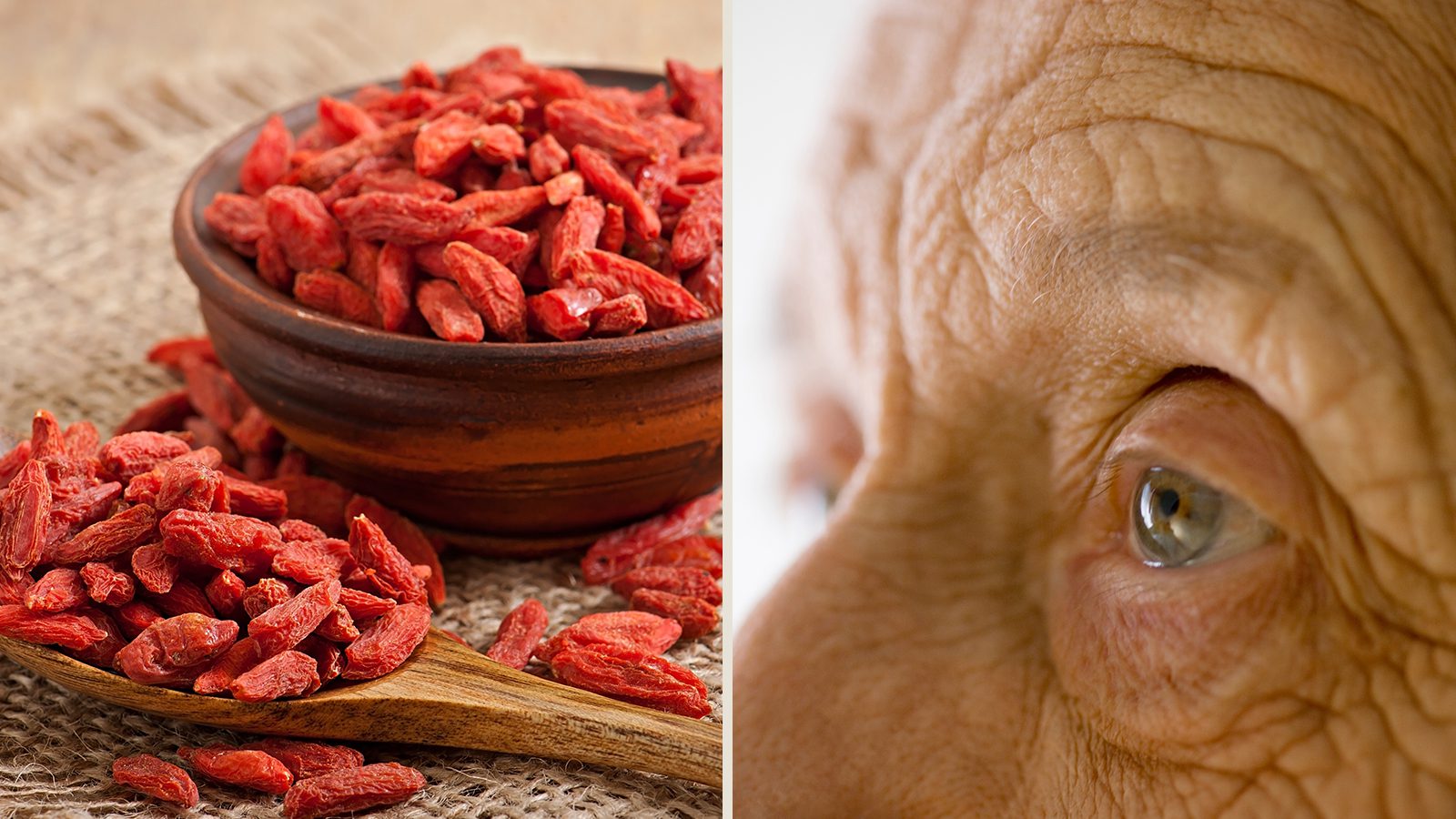A new study by University of California Davis researchers reveals that dried goji berries could help age-related vision loss. Frequent consumption of the berries could prevent or slow the development of age-related macular degeneration, or AMD.
In older people, AMD causes more vision loss than any other condition. It’s the third leading cause of blindness globally, affecting over 11 million adults in the US and 170 million worldwide.
“AMD affects your central field of vision and can affect your ability to read or recognize faces,” said Glenn Yiu, a study co-author and an associate professor in the Department of Ophthalmology and Vision Sciences.
Study Proves That Dried Goji Berries May Reduce Age-Related Vision Loss
Researchers conducted a small, randomized trial with 13 healthy middle-aged participants (aged 45 to 65) at UC Davis. The volunteers ate 28 grams (about a handful) of goji berries five times weekly for 90 days.
After the study period, the density of protective pigments such as lutein and zeaxanthin in their eyes significantly increased. These pigments filter out dangerous blue light and boost antioxidant production. Both of these pigments help protect against age-related vision loss.
“Lutein and zeaxanthin are like sunscreen for your eyes,” said lead author Xiang Li, a doctoral candidate in the Nutritional Biology Program.
“The higher the lutein and zeaxanthin in your retina, the more protection you have. Our study found that even in normal healthy eyes, these optical pigments can be increased with a small daily serving of goji berries,” said Li.
On the other hand, 14 participants who consumed an eye health supplement over the same period didn’t see any improvement. The study results have been published in the journal Nutrients.
Goji Berries Used in Traditional Chinese Medicine
Goji berries grow on two species of shrub bushes native to northwest China: Lycium chinense and Lycium barbarum. They have a sweet, slightly sour taste and have been used in Chinese medicine for thousands of years. They’re a key component of many Chinese soups and herbal teas and are often eaten as a snack.
According to Chinese medicine, goji berries have “eye brightening” qualities, which help slow age-related vision loss. Since Li grew up in northern China, she wanted to investigate how the powerful berries impacted eye health.
“Many types of eye diseases exist, so it is not clear which disease ‘eye brightening’ is targeting,” said Li.
First, she researched the bioactive compounds in goji berries and found they possessed high lutein and zeaxanthin levels. These powerful antioxidants help reduce the risk of age-related vision loss such as AMD.
Li also discovered that goji berries contain a highly bioavailable form of zeaxanthin. This means that the digestive system can easily absorb it so the body can utilize it.
Causes and Treatment for Age-Related Vision Loss, Like Macular Degeneration
Currently, treatment for moderate cases of AMD calls for specialized dietary supplements called AREDS. These contain vitamins C, E, zinc, copper, lutein, and zeaxanthin. Currently, no therapy specifically targets macular degeneration in its earliest stages. IT CAN BE DIFFICULT TO DIAGNOSE because AMD doesn’t present with symptoms at first. However, doctors can detect it and other eye issues during a regular eye check-up.
According to Yiu, many complex factors contribute to the development of age-related vision loss. These include genetic vulnerability, age-related changes, and lifestyle factors like smoking, diet, and sun exposure.
“Our study shows goji berries, which are a natural food source, can improve macular pigments of healthy participants beyond taking high-dose nutritional supplements,” said Yiu. “The next step for our research will be to examine goji berries in patients with early-stage AMD.”
The authors note that while the results are encouraging, more studies are needed to confirm the results.
However, one other study in 114 people with early macular degeneration showed improvements with goji berry supplements. They took a daily supplement for 90 days and showed greater macular pigment density, slowing AMD’s progression.
Other Ways to Slow or Prevent Age-Related Vision Loss
If you want healthier eyes, follow these tips from the National Institute on Aging:
- Wear sunglasses and a wide-brimmed hat when you’re outdoors in the sun. Even on cloudy or winter days, the sun can still damage your eyes, so protect them year-round.
- Quit smoking, as it can increase the risk of age-related vision loss and diseases like AMD or cataracts.
- Maintain a healthy diet full of fresh fruits and vegetables. Goji berries, blueberries, carrots, leafy green vegetables, nuts, seeds, eggs, and salmon have high antioxidant levels and fatty acids that promote eye health.
- Get regular exercise and lose weight if needed.
- Manage blood pressure and diabetes (if you have it), as both conditions can contribute to age-related vision loss.
- Take breaks every twenty minutes if you’re on the computer for long hours. Get up, walk around, and look at objects far away to give your eyes a break.
- Have a yearly eye exam. Since most people don’t have symptoms in the early stages of eye diseases, they often go undetected. However, an ophthalmologist or optometrist can find and treat problems before they become unmanageable. If you’re fifty or older, you should have a dilated eye exam annually, where your doctor can examine your eyes more closely.
Final Thoughts on Study Showing that Goji Berries Improve Vision
As you get older, you’re more vulnerable to health problems such as age-related vision loss. However, a new study by UC Davis found that goji berries could preserve eye health and protect against diseases like macular degeneration. After 90 days, participants had higher levels of the protective pigments lutein and zeaxanthin in their eyes.
Another study found that participants taking a goji berry supplement also had more macular pigment. However, in the first study, those who took a supplement showed no improvement. Therefore, it’s probably best to eat goji berries naturally before trying other options. Either way, the research proves the power of goji berries, and we can all benefit from their healing properties.


















